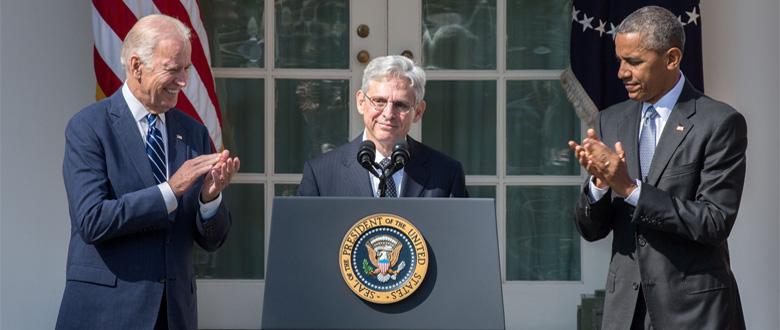A Hearing for Chief Judge Merrick B. Garland

Today, President Barack Obama nominated Merrick B. Garland to be the 113th justice of the United States Supreme Court. By all accounts, Mr. Garland is an outstanding candidate. He had a stellar career as a lawyer, both in the public and private sectors, and serves as the Chief Judge of the United States Court of Appeals for the District of Columbia Circuit, perhaps the most prestigious and celebrated federal appeals court in the country. And in 1997, he received bipartisan support for his appointment to the DC Circuit.
Yet, if we are to believe what we have seen and heard starting just 15 minutes after Justice Antonin Scalia’s untimely death was announced, Mr. Garland will not be confirmed. Indeed, he will not even get a hearing. That a candidate as accomplished as Mr. Garland will not be allowed to make a case to the American public that he is the right person for the job and that he will protect the rights and liberty of all people living in this country, is an undeniably glaring signal of how dispiritingly broken and dysfunctional our politics have become.
Of course, there is more at stake with this nomination than the functioning of our political system. Critically important cases, whose resolution could undermine efforts to advance equity for low-income communities and community of color, are before the Court. For example, in Fisher v. University of Texas at Austin, the Court will revisit the constitutionality of affirmative action. In Evenwel v. Abbott, the Court’s ruling could undermine the political power of minority groups, particularly Latinos. And at issue in Friedrichs v. California Teachers Association, is the financial sustainability of unions. Mr. Garland’s appointment, assuming he is confirmed in a timely manner, could lead to rulings that promote equity in all these cases.
Article II, Section 2 of the United States Constitution states, “[The President] shall nominate, and by and with the advice and consent of the Senate, shall appoint ambassadors, other public ministers and consuls, and judges of the Supreme Court . . . ."
President Obama has done his job. It is time for Republicans in the Senate to do theirs.

